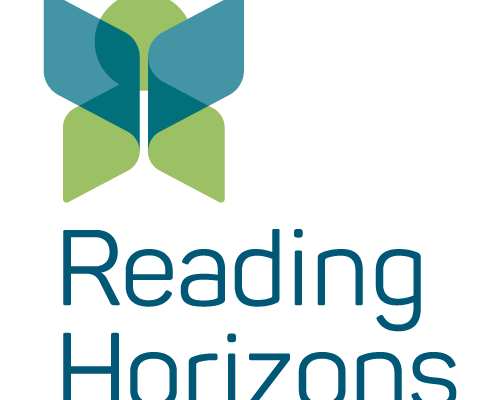8 Tips to Reduce Your Teacher’s Stress and Raise Performance in Their Classroom

A curriculum and training specialist offers research-based tactics to create a happier and more productive learning environment.
By Carrie Drake
Building and strengthening our resilience to stress makes us better prepared to handle all the challenges we may face in our personal and professional lives. That doesn’t just make us happier and more peaceful. It can also produce measurable outcomes in your teachers’ classrooms.
According to a 2016 study from Pennsylvania State University, highly stressed teachers correlate with:
- Lower academic performance among students;
- Lower social adjustment among students;
- Less continuity for students and their families;
- Increased absenteeism among stressed teachers;
- Higher rates of educator turnover; and
- Higher costs for schools.
Of course, students’ stress also affects the classroom and students’ ability to learn. Two decades of research have documented the negative impacts that stress has on students’ brains. When children are stressed, they experience profound, negative changes in their brain structure and brain chemistry. For example, stress disrupts how their neurons communicate, and high levels of the stress hormone cortisol have been shown to damage the parts of the brain involved in learning.
This can lead to:
- Difficulty concentrating;
- Poor retention of new information; and
- Difficulty remembering things they’ve learned in the past.
Over the last year, most teachers have heard all of the cliched wellness advice, such as “Get more sleep,” “Eat a healthy meal,” or “Exercise!” But when, exactly, is an overworked and overburdened teacher supposed to find time for a workout?
Here are a few tips to help you help your teachers manage their own stress in the classroom without a lot of effort or planning, along with some tips to help their students manage their own stress.
- Support your teachers—and encourage them to seek more.
Social support is great for managing stress, and for teachers an important source of support is their administration. You provide the tools, resources, training, and professional development teachers need to do their job well and with confidence. Ask them what kind of help they need and encourage them to come to you when they are struggling.
Coworkers can also be a powerful source of support. Your teachers are not on this journey alone, and sharing their feelings with a colleague who understands what they’re going through can help maintain a more balanced perspective.
- Create routines for teachers.
Many teachers report feeling stressed because they lack control, whether it’s because they don’t have a voice in decision-making at their school, federal or state policies that affect their practice, or crises like the pandemic.
Following routines gives our brains a sense of structure, regularity, and predictability, even amid ambiguity and change. Encourage them to create structured beginnings and endings to classroom sessions, be they virtual or in-person, as one way to feel more in control. A specific post-work routine—even something as simple as a 15-minute walk—can provide a sense of stability while they unwind and disconnect from work.
- Reframe and change their perception.
Studies show that how we talk about our stress, and the way that we view stressful situations, have direct implications on how our bodies and brains respond to stress. Our beliefs about challenges in the school workplace matter.
Encourage teachers to avoid catastrophic thinking by not jumping to the worst-case scenario when something difficult arises. A more positive perception can help to both prevent an autonomic stress response and to restore their bodies and brains to a state of calm and balance if their fight-or-flight response does get fired up.
Encourage them to monitor their self-talk. Our inner voices can sometimes tear us down, so remind teachers to keep an eye out for that and counter it with more positive self-talk. Suggest they think about the way they’d talk to a friend or loved one going through a hard time and treat themselves with the same kindness and generosity they’d show them.
Look for the positive, even in challenging situations, and model that positive outlook for your teachers.
Remind teachers to challenge their own beliefs. When we’re stressed, we can get pulled down into the spiral of negativity and begin thinking things that aren’t rooted in reality. Encourage them to ask themselves, “Is this true?” or “What are the facts?” to get focused on what’s in front of them and what can be done, instead of what could go wrong.
- Make sure they are modeling stress resilience for their students.
Helping students learn to manage their own stress levels begins with modeling that behavior for them. Recommend that teachers practice quick stress reduction techniques in front of and with their students. This is as easy as leading some deep breathing exercises, holding two-minute meditations, or moving around the room to get some blood flowing.
- Create routines for students.
Just as building routines into your day can help you manage stress levels, it can also help your students keep their stress levels low.
Remind teachers to consider ways to structure their daily classroom activities so that they follow a regular rhythm or schedule. Then, when they’re introducing a new concept, a shift in curriculum, or other activities that might create stress for their students, the routine helps their brains to remain more balanced and less prone to the natural fight-or-flight response.
- Help students destress before they encounter stressors.
Suggest teachers engage in calming techniques or stress-releasing exercises before embarking on something they know will trigger their students’ anxiety. For instance, an elementary school teacher might engage in a fun and relaxing music session as a break between teaching and doing a short exam.
- Make sure teachers know the signs of stress.
Stressed students tend to fall back on survival techniques that seem defensive or avoidant. Teachers might notice a slew of students requesting bathroom breaks before a test, for example, or more students out “sick” on a day when they have to present in front of the classroom.
Monitoring these classroom trends can help teachers know when they may need to increase their focus on stress-reducing strategies like music, exercise, or quiet time.
- Use SMILES to encourage positive psychology
While stress disrupts the brain’s learning processes, a positive mood has the opposite effect. Cultivating a positive emotional state helps to reduce the harmful effects of stress and even improves cognitive function.
The effects are complex, but the rationale is straightforward. Positive emotions trigger the release of neurotransmitters (such as serotonin, oxytocin, and dopamine), and these brain chemicals help activate the learning centers of the brain. As a teacher, this was incredibly eye-opening for me. Many educators focus on classroom tools and teaching techniques, but this research shows that one of the most powerful things we can do is prime our students’ brains with positivity.
The acronym SMILES, for sharing gratitude, meditation, intentional kindness, looking back, exercising, and social connection, can help teachers remember a half dozen different research-based ways to encourage positive psychology in their students.
As I learned in my classroom, priming students’ brains with positivity doesn’t need to take long, and it can go along with whatever curriculum and subjects are being taught. The same can be applied for administrators helping to prime teachers with positivity in order to increase work-life satisfaction and well-being.
Try implementing simple practices into already established norms and routines in your school or district. For example, if there is a teacher in-service meeting, you could begin by having teachers reflect on three good things that happened at work that week, or start with a 2-minute breathing-meditation exercise. Additionally, teachers could implement walking meetings when meeting with administrators or professional learning communities in order to reduce stress and increase endorphins and other positive neuro-transmitters
Focusing on our own stress can feel uncomfortable for a lot of people and for teachers it can feel downright transgressive. But administrators who encourage teachers to invest in their students’ mood and positivity will see dramatic results in their school or district’s academic results.
Carrie Drake, M.A., is a curriculum and training specialist at Reading Horizons. She recently took part in a four-part webinar entitled Getting to the Heart of Effective Reading Instruction with Social-Emotional Learning. In the webinar, Drake shows teachers how to use positive psychology strategies to help young readers to “Learn Happy,” an applied positive psychology program she created from her work with struggling readers. She can be reached at [email protected].






